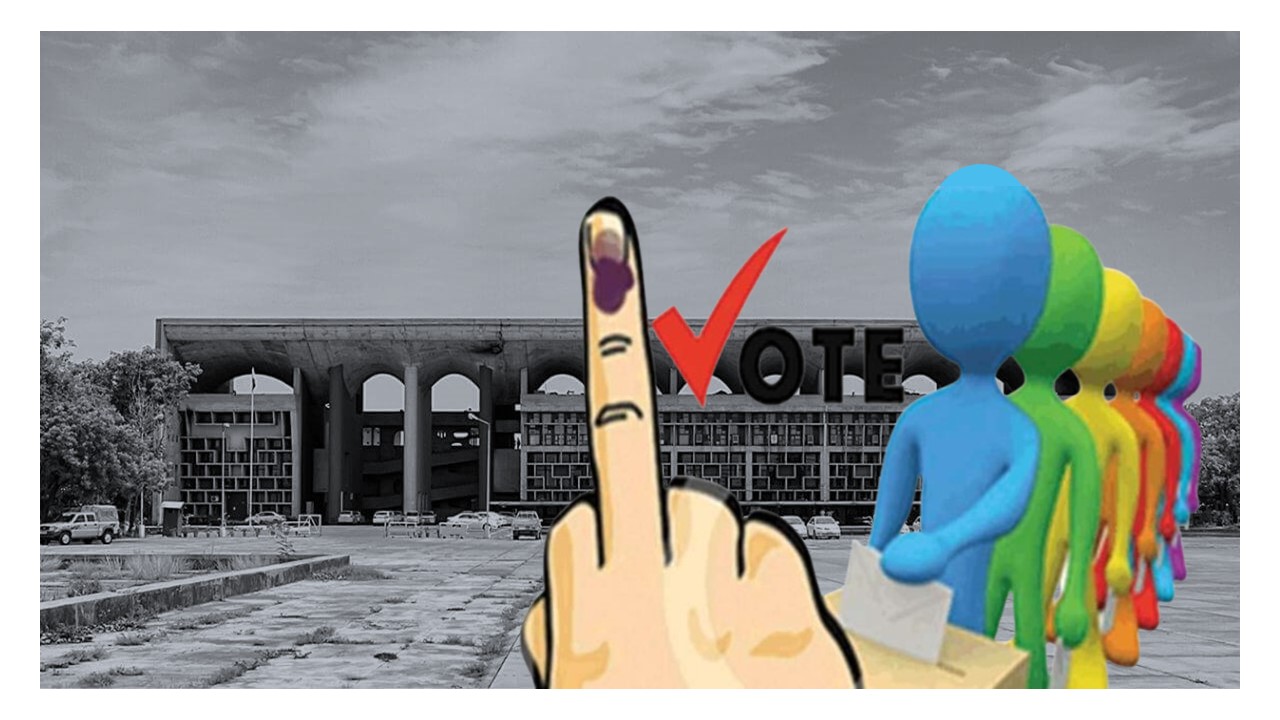-
by Admin
15 February 2026 2:36 AM



Election disputes must be addressed post-election through election petitions, not during the election process - High Court. On November 7, 2024, the Punjab and Haryana High Court delivered a significant ruling in Simarpreet Kaur v. State of Punjab & Others, setting aside the State Election Commission's order to cancel the Panchayat elections for the village of Chak Haraj, Tehsil Mamdot, District Ferozepur. The Court held that the Commission’s cancellation of the elections was beyond its jurisdiction and should have been addressed by an Election Tribunal through an election petition. The Court directed the authorities to declare the petitioner, Simarpreet Kaur, as elected unopposed as Sarpanch, and to conduct fresh elections for the Panch posts.
The controversy originated during the Panchayat elections in Chak Haraj. Simarpreet Kaur, the petitioner, filed her nomination for the position of Sarpanch. Several other candidates also submitted nominations for the posts of Sarpanch and Panch. However, after scrutiny, the nomination papers of certain candidates were rejected, leaving Simarpreet Kaur as the sole candidate for Sarpanch. Aggrieved by the rejection of their nominations, the disqualified candidates approached the State Election Commission, alleging that their nominations were rejected arbitrarily and maliciously. In response, on October 11, 2024, the State Election Commission issued an order canceling the elections for both the Sarpanch and Panch positions in the village.
Simarpreet Kaur challenged this cancellation order through a writ petition, arguing that it was arbitrary, illegal, and contrary to the principles of natural justice.
The core legal issue in the case was whether the State Election Commission had the authority to cancel the elections based on alleged improper rejection of nomination papers, or if such disputes should be adjudicated by the Election Tribunal post-election. The Court examined Section 89 of the Punjab State Election Commission Act, 1994, which enumerates grounds for declaring an election void, including the improper rejection of nomination papers. However, Section 89 clearly places the jurisdiction for such disputes with the Election Tribunal, not the State Election Commission.
"The State Election Commission lacks jurisdiction to adjudicate on matters relating to improper rejection of nomination papers during the election process," the Court observed. "Such issues are to be brought before the Election Tribunal via an election petition post-election."
Relying on Precedent: N.P. Ponnuswami v. Returning Officer, Namakkal Constituency (1952)
In reinforcing this view, the Court relied on the Supreme Court's landmark judgment in N.P. Ponnuswami v. Returning Officer, Namakkal Constituency, which established that election disputes should be addressed only after the election is completed through an election petition. The Supreme Court held that election processes should not be interrupted by judicial intervention, as this could unduly delay and complicate the election process.
The Punjab and Haryana High Court emphasized that this principle was directly applicable, as the State Election Commission's intervention disrupted the ongoing election process. "Interference by the State Election Commission mid-election contravenes established legal principles meant to preserve the integrity and timeliness of the electoral process," the Court noted.
The High Court quashed the State Election Commission’s order of October 11, 2024, canceling the Panchayat elections in Chak Haraj. It observed that since Simarpreet Kaur was the sole remaining candidate for the Sarpanch position, she should have been declared elected unopposed. The Court issued the following key directions:
Declaration of the Petitioner as Elected Sarpanch: The Court directed the relevant authorities to declare Simarpreet Kaur as elected unopposed to the position of Sarpanch of Chak Haraj village.
Fresh Election for Panch Positions: The Court ordered that fresh elections be held for the Panch positions, limited only to those candidates whose nominations had been validly accepted.
Post-Election Remedies: The Court clarified that any aggrieved party could challenge the election results through an election petition filed before the Election Tribunal. The Tribunal was directed to resolve any such disputes expeditiously.
This ruling reinforces the procedural framework for handling election disputes in India, emphasizing the Election Tribunal’s exclusive jurisdiction over post-election challenges. By quashing the State Election Commission’s intervention, the Punjab and Haryana High Court underscored that election processes should not be interrupted mid-course, aligning with the Supreme Court’s precedent in N.P. Ponnuswami. The judgment ensures that electoral integrity is preserved while providing a clear pathway for aggrieved candidates to seek redress after the election.
Date of Decision: November 7, 2024
